Diablo IV: Vessel of Hatred is the first major expansion pack for the latest game in Blizzard’s popular hack-and-slash franchise and one of the most important game releases still to come this year.
Starting October 8, you’ll be able to once again plunge back into the darkly compelling world of Diablo IV. But what is there to look forward to in the expansion? Here’s everything you need to know.
The new Spiritborn class
There’s going to be a new class called the Spiritborn, which will be a sort of ninja monk archetype with druidic powers. He’s incredibly fast and not only able to catapult himself into the hordes of darkness but also transform into various animal deities.
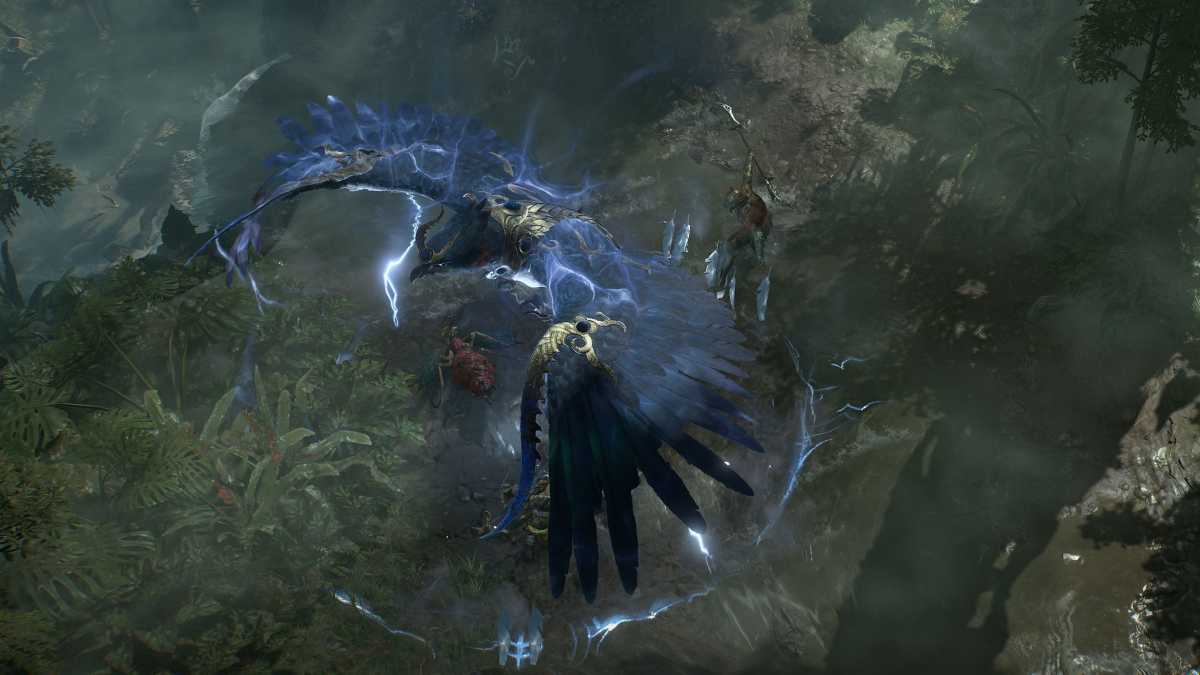
IDG
We begin as an eagle, the ruler of the skies. With its wide, electrically charged wings, it fries anything that gets too close and is perfect for escaping situations where we’re overrun from all sides.
These are other animal deities as well, like the jaguar. We transform from an eagle that can strike the ground and immobilize everyone for three seconds to the king of the jungle who crashes into crowds of enemies with a long jump. The jaguar is a fire deity — if it runs in circles, it looks like a ball of fire blazing its way.
And then there’s the centipede, which shoots corrosive acid from its tongue and burrows through the ground, shooting out of the earth and covering the whole floor in poison.
Blizzard itself refers to the Spiritborn as the Apex Predator, a fighting machine of the jungle that can summon all these Spirit Guardians.
The new Nahantu region
Diablo IV is an impressive work of art, but after 50+ hours in gloomy vaults and familiar areas, you might be itching for a fancy new region to explore. Well, it’s here and it’s called Nahantu.
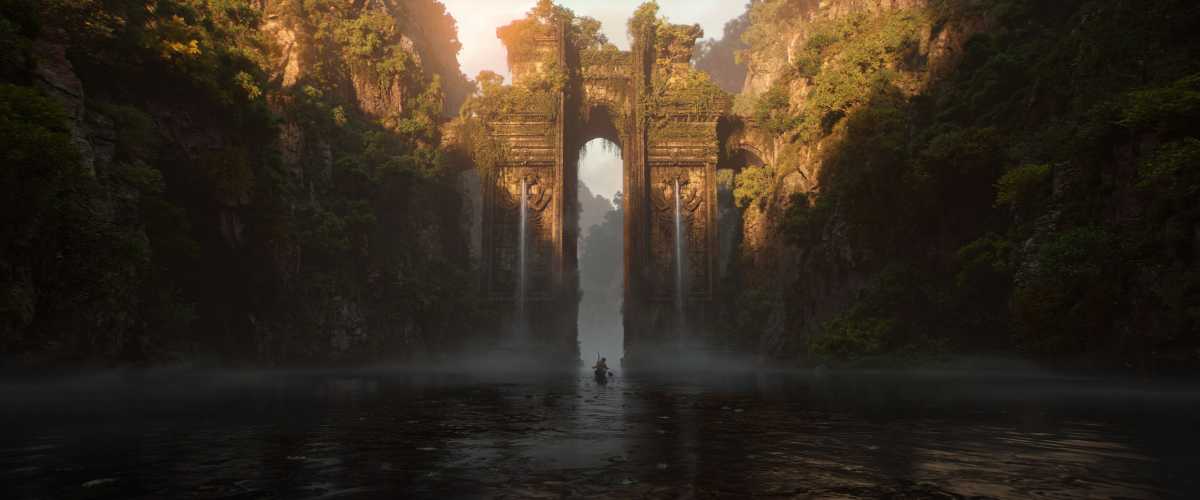
IDG
Nahantu is a world reminiscent of ancient South America, with long staircases leading up to majestic temples, whose religion and mythology are deeply rooted in history. It’s a magical world that can only be reached by river, where we must enter through a massive gate.
It has a unique style, but fans of The Lord of the Rings may be reminded of Mithlond, the Grey Havens. It’s just less European in style and more like the world of the Incas, Aztecs, or Mayans.
This also extends to the armor, where a lot of gold is used, often with a combination of armored loincloths, greaves, bracers, and elaborately designed helmets — just like the Aztecs fought.
Nahantu is divided into six new areas, four of which have different jungle themes and two that are more desert and red rock oriented, feeling more like the Red Rock Canyons of Nevada.
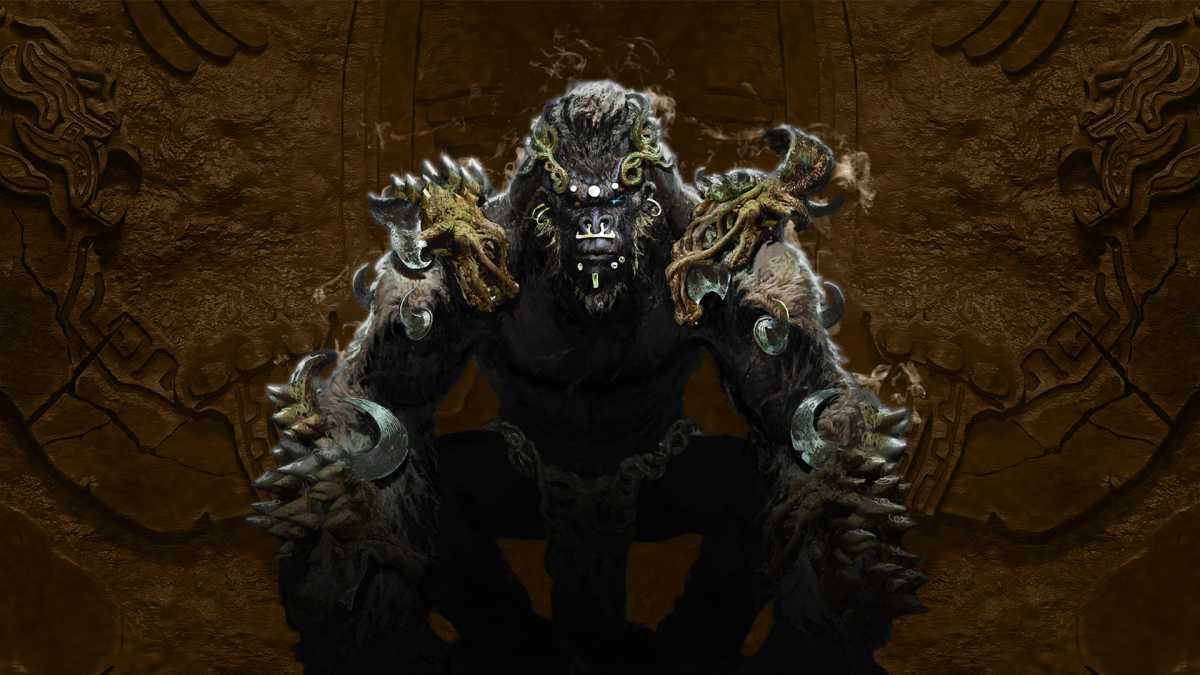
IDG
All of this is infused with Diablo DNA, of course. The starting area has been infected by the Hollow, making the green jungle floor look more like mud, with hardly any light coming through the dense trees. You can change all of this through your actions.
The Hollows also look like entities that could’ve come from South American mythology, with heads covered in gold but also with guts hanging out in Diablo style.
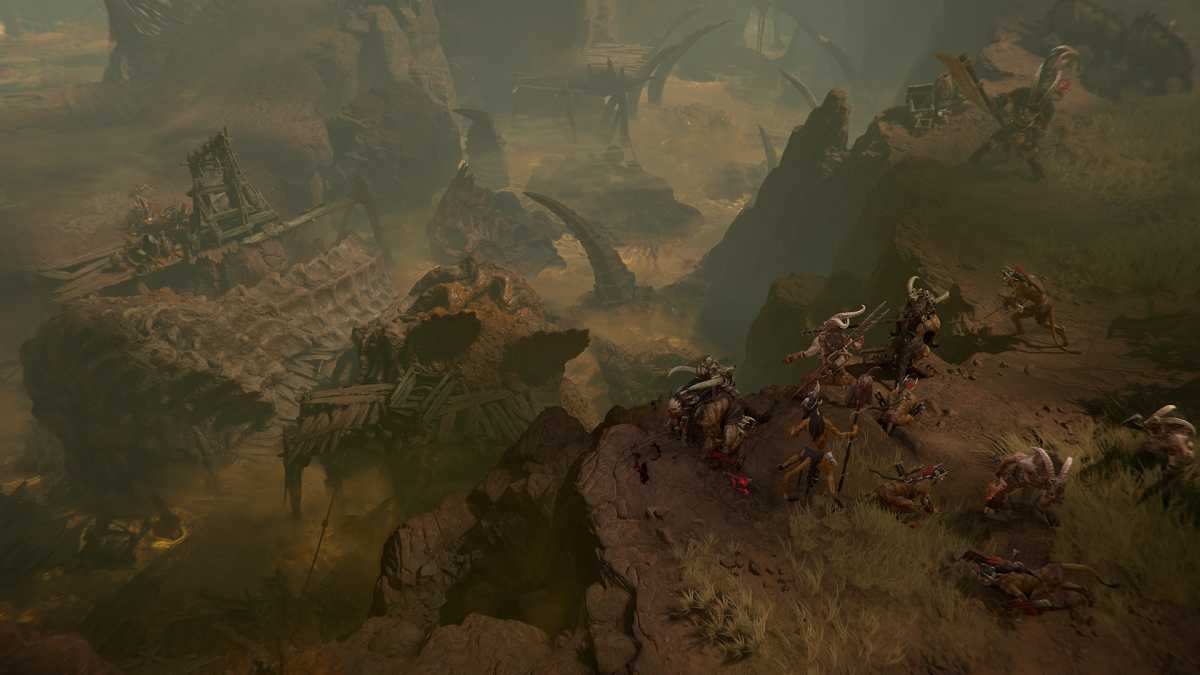
IDG
The Dregs, a new type of monster, are still vaguely recognizable as jungle folk thanks to their loincloths and the skulls on their leather armor. But their entire body is covered in turgid burns. One enemy type even looks like a ruler riding on the back of his slave, throwing poison bombs.
This is something Blizzard just knows how to do well: setting up a new world in which all the character designs exist in harmony.
The Spirit Hall, the Dark Citadel, and mercenaries
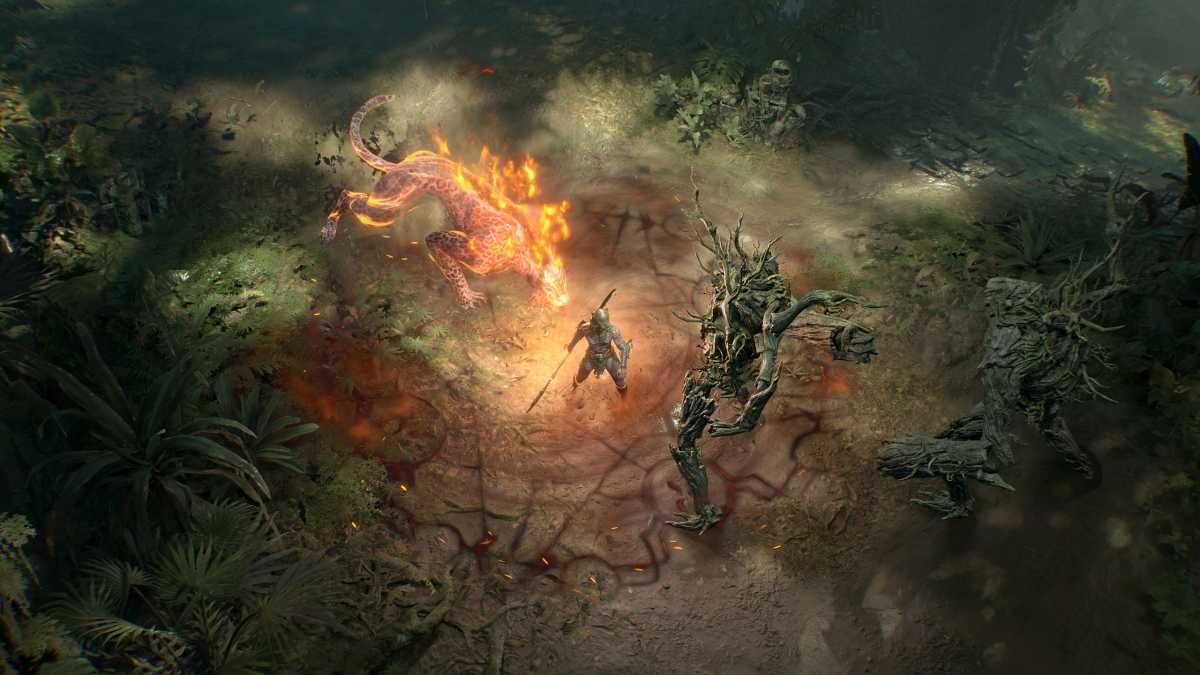
IDG
Diablo IV: Vessel of Hatred will be the perfect game to get lost in. Not only can you play through it one animal deity at a time, but the Spirit Hall lets you combine divine abilities from level 15. This includes area damage when you attack with wings like an eagle or the centipede’s sting attack that unleashes a swarm of mosquitoes as buzzing bodyguards.
The four new mercenaries also provide additional bodyguards: Raheir is a muscular barbarian who spans a magical shield over us. He introduces us to Subo, the drunken archer, who provides support from a distance.
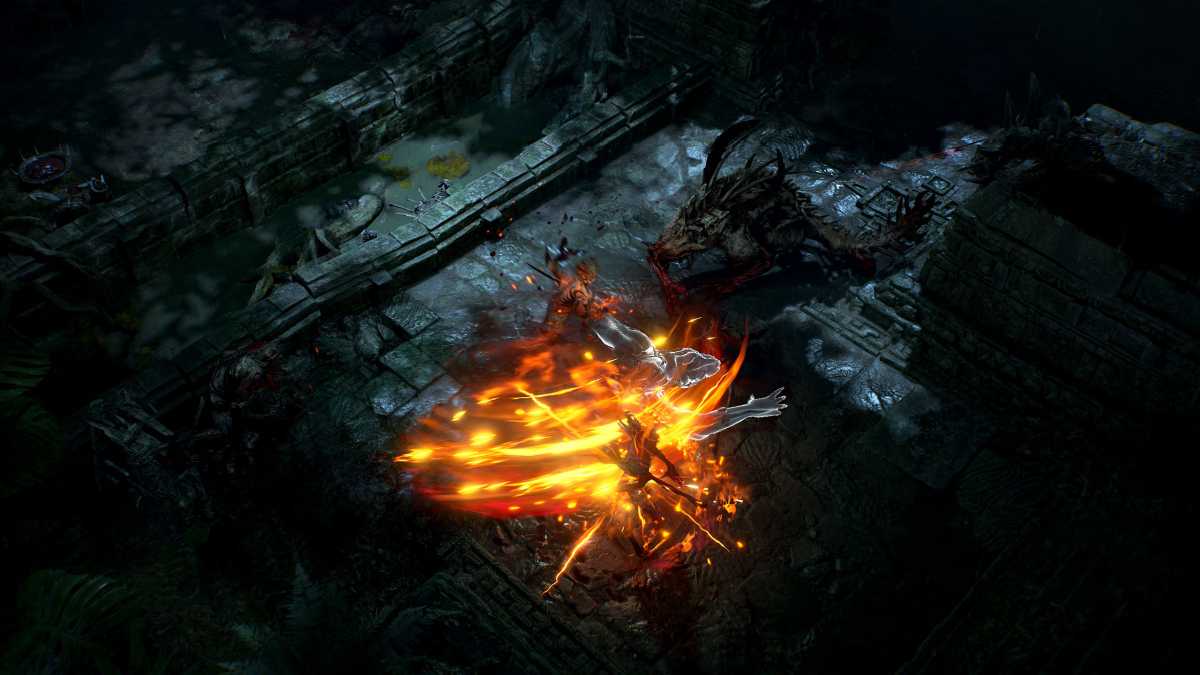
IDG
Basically, these mercenaries are already familiar from Diablo II, but this time they take on a different function. They’re based on the Diablo IV classes and are primarily supportive, complementing the strengths (and weaknesses) of your chosen class.
Subo, for example, can position himself on ledges and clean up from above with his crossbow. He can also throw explosive barrels and make them explode in the air, or — like the classic hunter — let loose a rain of arrows on the infernal hordes.
Varyana is a female barbarian who draws enemies in with a kind of gladiator net and goes into a frenzy where we have to keep filling her kill meter. And there’s also the demon child Aldkin, who can transform from a child with a pet lizard into demon form.
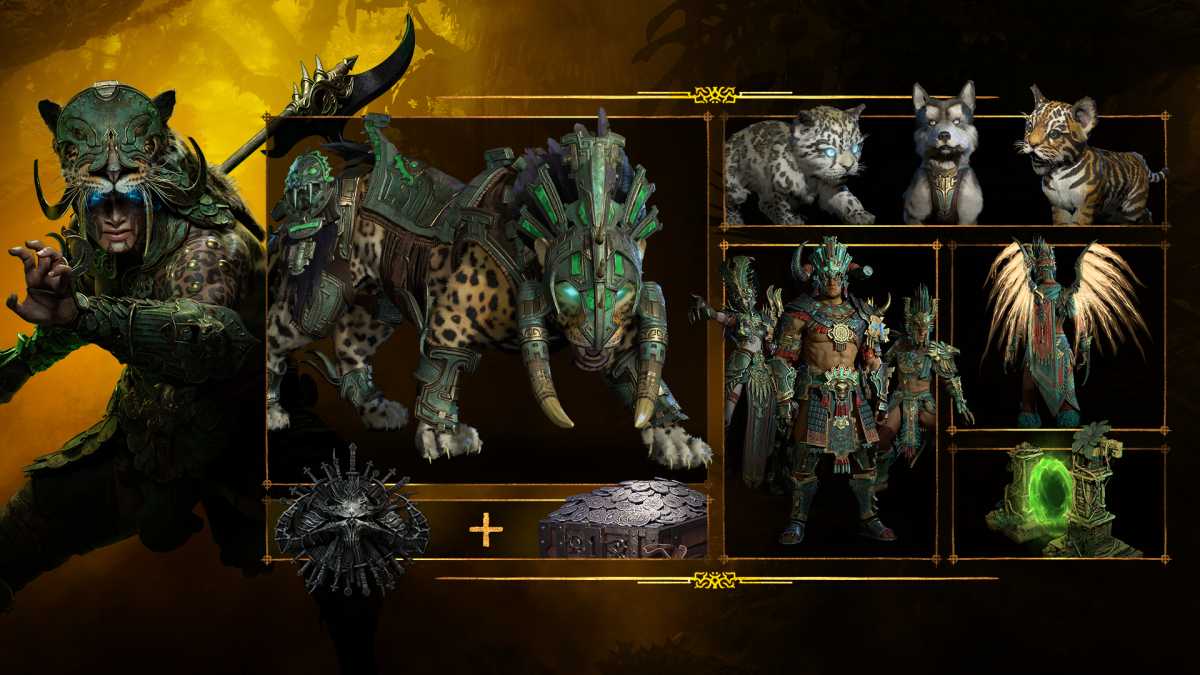
IDG
What’s really exciting is that each mercenary has their own skill tree, which you can tweak to further refine your play style.
Together, you then face the ultimate challenge of Vessel of Hatred: the Dark Citadel, a massive fortress where mysterious forces are trying to revive the dark gods. According to Blizzard, the Dark Citadel will be really tough but rewarding with special items and Citadel armor.
Watch the gameplay trailer
It’s a bit of a revolution for Diablo, making the world feel much more connected. We’re not strangers in Hades, in the underworld. We’re fighting in the jungle, which is our home.
There’s a lot of history — or rather mythology — behind it. Blizzard has come up with a whole new class, level, and world for its Vessel of Hatred expansion. But it remains quintessential Diablo with gigantic carcasses of demon dinosaurs serving as a home for all kinds of races.
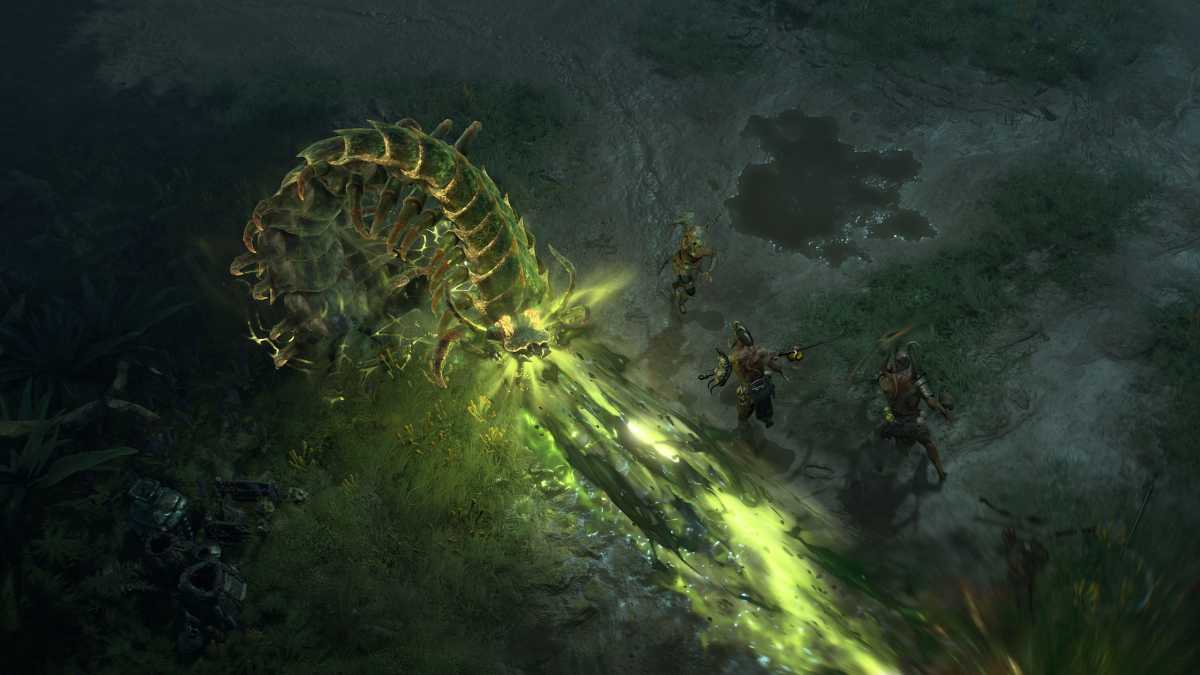
IDG
Last but not least, Diablo IV: Vessel of Hatred has a lot to offer story fans as it continues seamlessly from the events of the main game. For spoiler reasons, we won’t reveal too much at this point. But the first cinematic trailer rightly gave us goosebumps and promises a suitably dark continuation of events.
Diablo IV: Vessel of Hatred launches on PC, PlayStation 4, PlayStation 5, and Xbox Series X/S on October 8, 2024.
This article originally appeared on our sister publication PC-WELT and was translated and localized from German.




